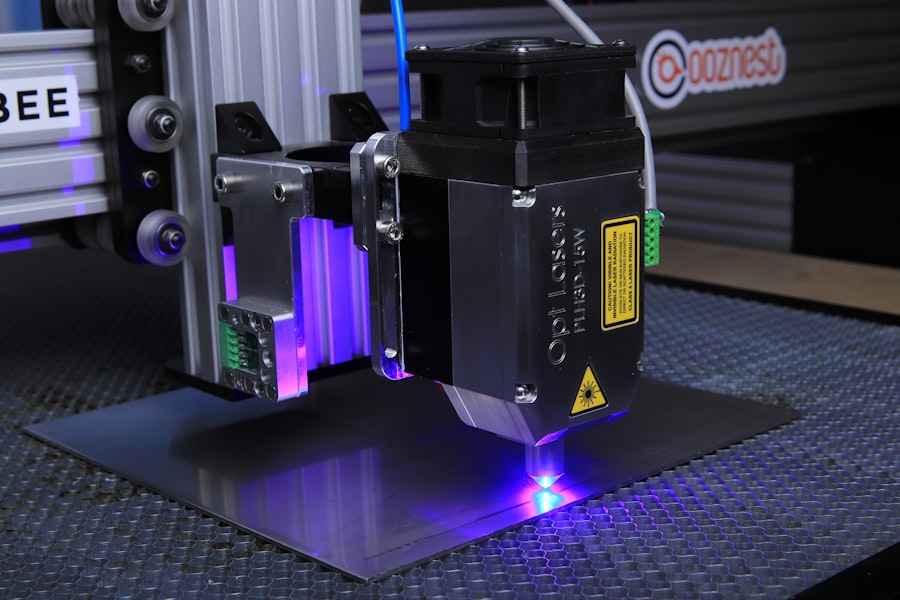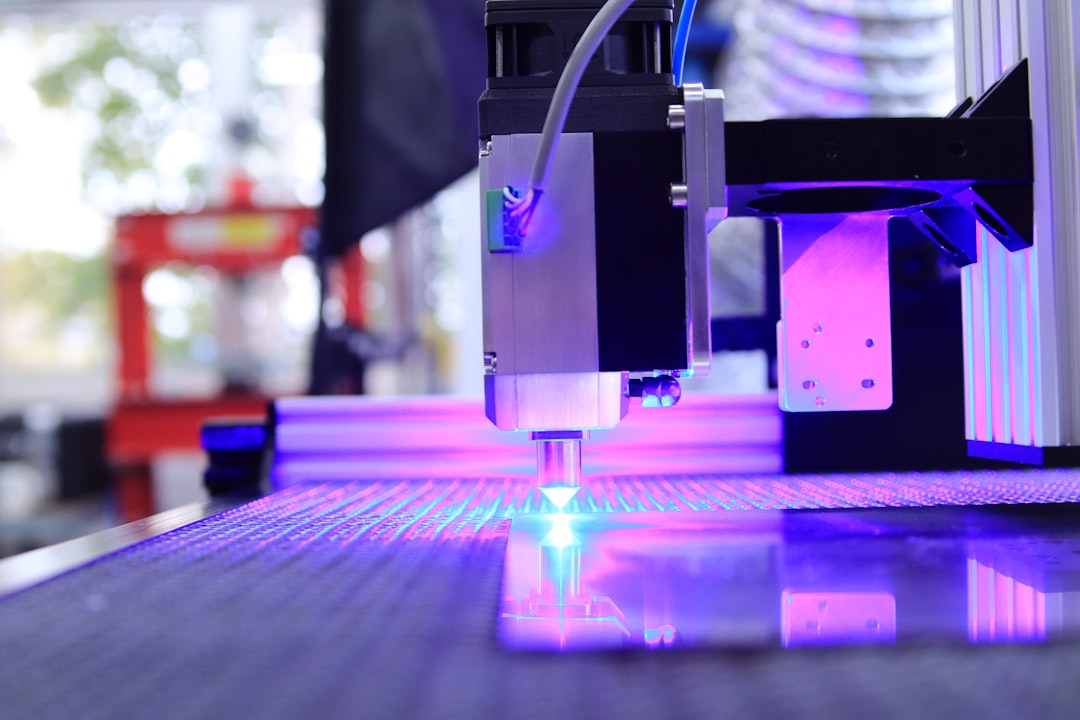Laser hair removal is a popular cosmetic procedure that uses concentrated beams of light to remove unwanted hair. When it comes to black skin, there are some unique considerations to keep in mind. The melanin in darker skin tones can make traditional laser hair removal treatments more challenging, as the laser targets the pigment in the hair follicle, which can also be present in the surrounding skin. This can increase the risk of burns, hyperpigmentation, and scarring if not performed by a specialist with experience in treating black skin.
It’s important to understand that not all laser technologies are suitable for black skin. Traditional lasers such as Alexandrite and Diode can pose a higher risk of complications, while Nd:YAG lasers are considered safer for darker skin tones. These lasers have longer wavelengths that are better absorbed by the hair follicle and less likely to affect the surrounding skin. Understanding the specific needs and challenges of laser hair removal for black skin is crucial for achieving safe and effective results.
Laser hair removal works by targeting the pigment in the hair follicle, heating it up and damaging the follicle to inhibit future hair growth. For black skin, it’s essential to use the right laser technology and settings to minimize the risk of adverse effects. Consulting with a qualified specialist who has experience in treating black skin is the first step in understanding the unique considerations for laser hair removal in individuals with darker skin tones.
Key Takeaways
- Laser hair removal for black skin requires specialized equipment and expertise due to the higher risk of pigmentation changes and burns.
- The benefits of laser hair removal for black skin include long-lasting results, reduced risk of ingrown hairs, and improved skin texture.
- Preparing for laser hair removal as a person with black skin involves avoiding sun exposure, discontinuing certain skincare products, and discussing any medical conditions or medications with the specialist.
- Finding the right laser hair removal specialist for black skin requires research into their experience, training, and the type of laser technology they use.
- Aftercare for laser hair removal on black skin involves protecting the treated area from sun exposure, using gentle skincare products, and following the specialist’s post-treatment instructions.
- Potential risks and side effects of laser hair removal for black skin include hyperpigmentation, hypopigmentation, and burns, which can be minimized by choosing a qualified specialist and following proper aftercare.
- Frequently asked questions about laser hair removal for black skin include inquiries about pain level, number of sessions needed, and the effectiveness on different body areas.
The Benefits of Laser Hair Removal for Black Skin
Laser hair removal offers several benefits for individuals with black skin. One of the primary advantages is the long-term reduction of unwanted hair. Unlike shaving or waxing, which only provide temporary results, laser hair removal can lead to permanent hair reduction over time. This can be particularly beneficial for black individuals who may experience ingrown hairs and hyperpigmentation as a result of traditional hair removal methods.
Another benefit of laser hair removal for black skin is the potential improvement in skin texture and tone. Shaving and waxing can cause irritation and inflammation, leading to dark spots and uneven skin tone, especially in individuals with darker skin tones. Laser hair removal can help reduce these issues by targeting the hair follicles without causing damage to the surrounding skin, leading to smoother, clearer skin over time.
Additionally, laser hair removal can save time and money in the long run. Constantly shaving or waxing can be time-consuming and costly, while laser hair removal offers a more permanent solution that eliminates the need for regular maintenance. For individuals with black skin who may have specific concerns and challenges with traditional hair removal methods, laser hair removal can provide a safe and effective alternative for achieving smooth, hair-free skin.
Preparing for Laser Hair Removal as a Person with Black Skin
Preparing for laser hair removal as a person with black skin involves several important steps to ensure a safe and successful treatment. One of the first considerations is to find a qualified specialist who has experience in treating darker skin tones. It’s essential to research and choose a reputable clinic or provider who understands the unique needs and challenges of laser hair removal for black skin.
Before the treatment, it’s important to avoid sun exposure and tanning beds, as this can increase the risk of complications and adverse effects, especially for individuals with darker skin tones. Sun protection is crucial for maintaining the health and integrity of the skin, so using sunscreen and protective clothing is recommended in the weeks leading up to the laser hair removal treatment.
Another important aspect of preparing for laser hair removal is to discontinue any other hair removal methods such as waxing, plucking, or electrolysis. These methods can interfere with the effectiveness of laser hair removal by disrupting the hair growth cycle. Shaving is typically allowed before the treatment to ensure that the hair shaft is present for the laser to target.
Finally, it’s essential to follow any specific pre-treatment instructions provided by the specialist, such as avoiding certain skincare products or medications that can increase sensitivity to the laser. By taking these preparatory steps, individuals with black skin can help ensure a safe and successful laser hair removal treatment.
Finding the Right Laser Hair Removal Specialist for Black Skin
| Factors to Consider | Importance |
|---|---|
| Experience with Black Skin | High |
| Use of Suitable Laser Technology | High |
| Positive Client Reviews | Medium |
| Pricing and Packages | Medium |
| Consultation and Patch Test | High |
Finding the right laser hair removal specialist for black skin is crucial for achieving safe and effective results. When searching for a provider, it’s important to look for a clinic or practitioner with experience in treating individuals with darker skin tones. This may involve researching online, reading reviews, and asking for recommendations from friends or family members who have undergone laser hair removal on black skin.
It’s also important to schedule consultations with potential providers to discuss their experience and expertise in treating black skin. During these consultations, individuals can ask specific questions about the type of laser technology used, the provider’s experience with darker skin tones, and any before-and-after photos of previous patients with similar skin types.
In addition to experience and expertise, individuals should also consider the overall professionalism and cleanliness of the clinic or practice. A reputable provider will prioritize safety and hygiene, ensuring that all equipment is properly maintained and sterilized for each treatment.
Furthermore, individuals should feel comfortable and confident in their chosen specialist, so it’s important to assess the level of communication and rapport during the initial consultations. By taking the time to find a qualified and experienced laser hair removal specialist for black skin, individuals can minimize the risk of complications and achieve optimal results.
Aftercare for Laser Hair Removal on Black Skin
Aftercare for laser hair removal on black skin is an essential part of ensuring a safe and successful treatment outcome. Following the procedure, it’s common to experience some redness and mild discomfort in the treated area. This can typically be managed with cold compresses or over-the-counter pain medication as recommended by the specialist.
It’s important to avoid sun exposure and tanning beds following laser hair removal, as the skin may be more sensitive to UV radiation. Using sunscreen with a high SPF and wearing protective clothing can help protect the treated area from potential damage and hyperpigmentation.
In addition, it’s important to follow any specific aftercare instructions provided by the specialist, such as avoiding certain skincare products or activities that can irritate the skin. Keeping the treated area clean and moisturized can also help promote healing and reduce the risk of complications.
It’s essential to attend any follow-up appointments scheduled by the specialist to monitor progress and address any concerns or questions that may arise during the recovery period. By following these aftercare guidelines, individuals with black skin can help ensure a smooth and successful recovery after laser hair removal.
Potential Risks and Side Effects of Laser Hair Removal for Black Skin

While laser hair removal can be a safe and effective treatment for black skin when performed by a qualified specialist, there are potential risks and side effects to be aware of. One of the primary concerns is the risk of hyperpigmentation, which can occur when the laser energy affects the melanin in the surrounding skin, leading to dark spots or discoloration. This risk is higher for individuals with darker skin tones, so it’s important to use appropriate laser technology and settings to minimize this potential side effect.
Another potential risk of laser hair removal for black skin is the possibility of burns or blistering if the treatment is not performed correctly. Using the wrong type of laser or incorrect settings can lead to thermal damage to the skin, causing pain, discomfort, and potential scarring. This highlights the importance of finding a specialist with experience in treating black skin to minimize these risks.
In addition to hyperpigmentation and burns, individuals may also experience temporary side effects such as redness, swelling, and mild discomfort following laser hair removal. These symptoms typically subside within a few days but should be monitored closely during the recovery period.
It’s important for individuals considering laser hair removal on black skin to discuss these potential risks and side effects with their chosen specialist during the initial consultations. By understanding these considerations, individuals can make informed decisions about their treatment options and take proactive measures to minimize potential complications.
Frequently Asked Questions about Laser Hair Removal for Black Skin
1. Is laser hair removal safe for black skin?
Laser hair removal can be safe for black skin when performed by a qualified specialist using appropriate technology and settings. It’s important to find a provider with experience in treating darker skin tones to minimize potential risks and complications.
2. What type of laser is best for black skin?
Nd:YAG lasers are considered safer for black skin due to their longer wavelengths that are better absorbed by the hair follicle and less likely to affect the surrounding skin. It’s important to discuss laser options with a qualified specialist before undergoing treatment.
3. How many sessions are needed for laser hair removal on black skin?
The number of sessions needed for laser hair removal can vary depending on individual factors such as hair thickness, density, and growth cycle. On average, multiple sessions spaced several weeks apart are typically required to achieve optimal results.
4. What should I expect during recovery after laser hair removal on black skin?
After laser hair removal, individuals may experience redness, mild discomfort, and sensitivity in the treated area. It’s important to follow specific aftercare instructions provided by the specialist and avoid sun exposure to promote healing.
5. Are there any specific risks or side effects of laser hair removal for black skin?
Potential risks and side effects of laser hair removal for black skin include hyperpigmentation, burns, blistering, redness, swelling, and discomfort. It’s important to discuss these considerations with a qualified specialist before undergoing treatment.
In conclusion, laser hair removal can be a safe and effective option for individuals with black skin when performed by a qualified specialist using appropriate technology and settings. By understanding the unique considerations, benefits, preparation steps, finding the right specialist, aftercare guidelines, potential risks, and frequently asked questions about laser hair removal for black skin, individuals can make informed decisions about their treatment options and take proactive measures to achieve smooth, hair-free skin safely.
If you’re considering laser hair removal, you may also be interested in learning about perianal laser hair removal. This specialized treatment can provide long-lasting results in a sensitive area. To find out more about the process and its benefits, check out the article “Perianal Laser Hair Removal: What You Need to Know.” Understanding the different options available can help you make an informed decision about your laser hair removal journey.
FAQs
What is laser hair removal?
Laser hair removal is a cosmetic procedure that uses a concentrated beam of light (laser) to remove unwanted hair. The laser targets the pigment in the hair follicle, damaging the follicle and inhibiting future hair growth.
Is laser hair removal safe for black skin?
Yes, laser hair removal can be safe for black skin when performed by a qualified and experienced practitioner using the appropriate laser technology. It is important to use a laser that is specifically designed for darker skin tones to minimize the risk of pigmentation changes or burns.
What are the potential risks for black individuals undergoing laser hair removal?
The potential risks for black individuals undergoing laser hair removal include hyperpigmentation, hypopigmentation, and burns. These risks can be minimized by using the appropriate laser technology and ensuring the practitioner has experience working with darker skin tones.
How many sessions are typically needed for laser hair removal on black skin?
The number of sessions needed for laser hair removal on black skin can vary depending on the individual’s hair type, skin tone, and the area being treated. On average, 6-8 sessions are typically needed to achieve optimal results.
What areas of the body can be treated with laser hair removal for black individuals?
Laser hair removal can be used to treat unwanted hair on various areas of the body, including the face, underarms, arms, legs, bikini area, and back. It is important to consult with a qualified practitioner to determine the best treatment plan for specific areas.
How should black individuals prepare for laser hair removal?
Before undergoing laser hair removal, black individuals should avoid sun exposure and tanning beds to minimize the risk of pigmentation changes. It is also important to shave the treatment area before the procedure and to follow any specific pre-treatment instructions provided by the practitioner.






